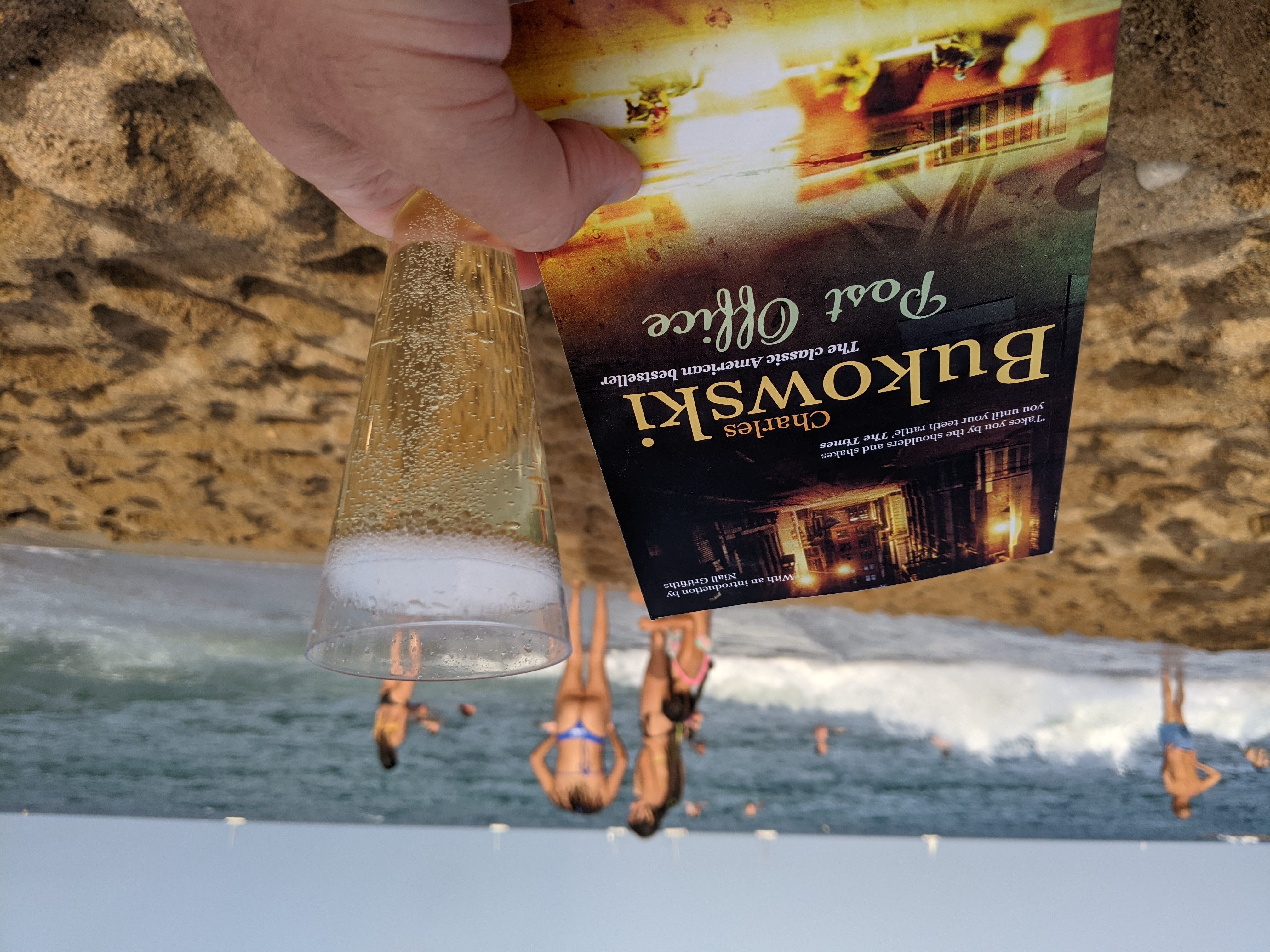Post Office
Last Blog | Index | Next Blog
Fifty | Garden | Ninety | Pics | Twenty-Five
18 August 2022 - Navarrete
Chuck Bukowski is someone whose poetry has appealed to me with its raw, honest vulgarity, and his novel Post Office is no different in this respect. The story follows ne'er-do-well Henry Chinaski through his troubles with work and women and alcohol. Bukowski writes in the first person and his fiction is laced with the experiences of his life. The sections of the book are divided between the different women he was paired with, but the underlying constant is his on again off again work at the post office. The kafkaesque bureaucracy he's forced to deal with is apropos as I continue to deal with NAV, the Norwegian social services agency, and their continued collection efforts. If you dare not to work then they'll make up a salary to charge you a percentage of. As my former employer wrote me today, "it is unclear what NAV wants, but generally I haven't found any way to make reality, common sense or law play much role in their decisions. It's frustrating, I know." This is the sort of "legal" process governments throughout history have used to enslave people. Chinaski's response is to repeatedly try to quit the post office but he keeps getting drawn back in. Only in the end does he succumb to alcohol as escape to become a novelist, although the book ends with his decision so we have no idea if he's successful. The obvious implication is that this part is autobiographical and this first novel of Bukowski was a hit. I left my copy at an Albergue in Navarrete for the next Pelegrino to read and headed on down the Camino.

